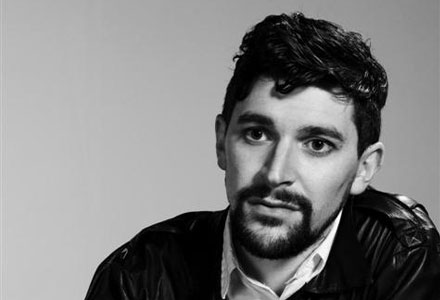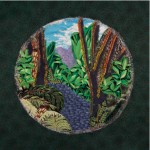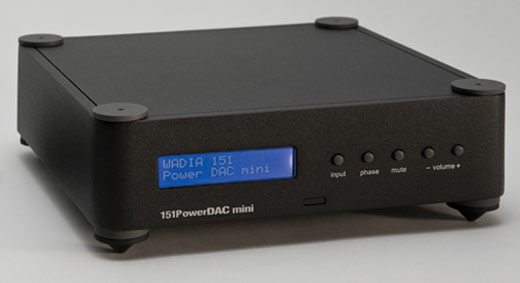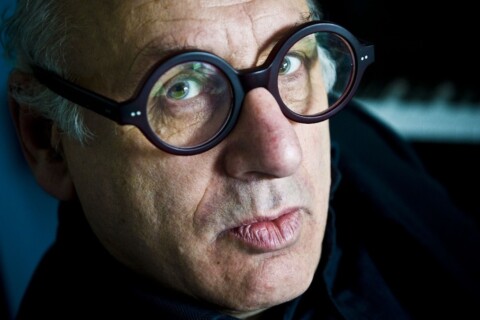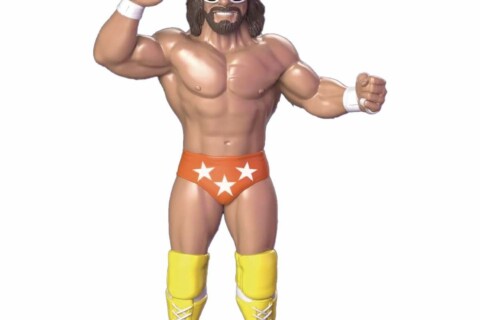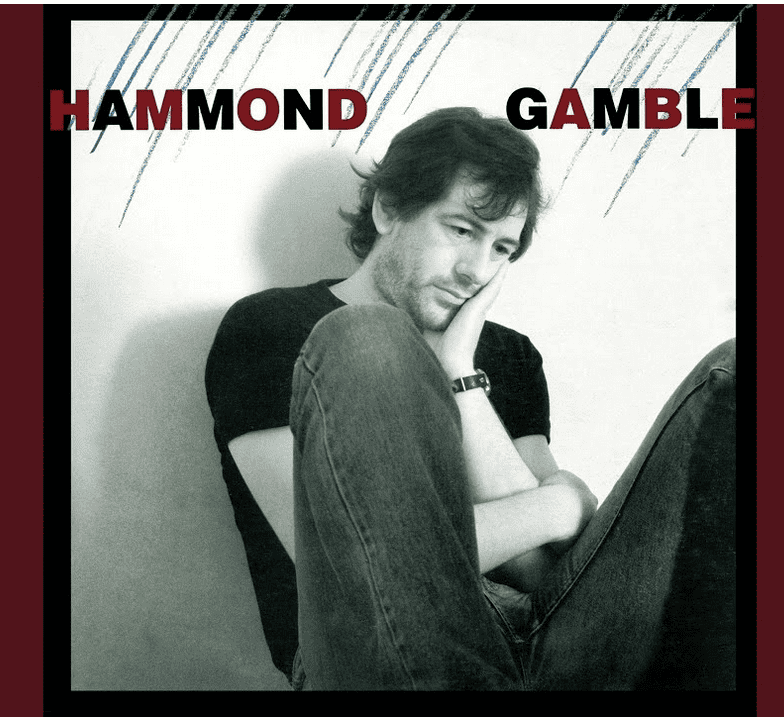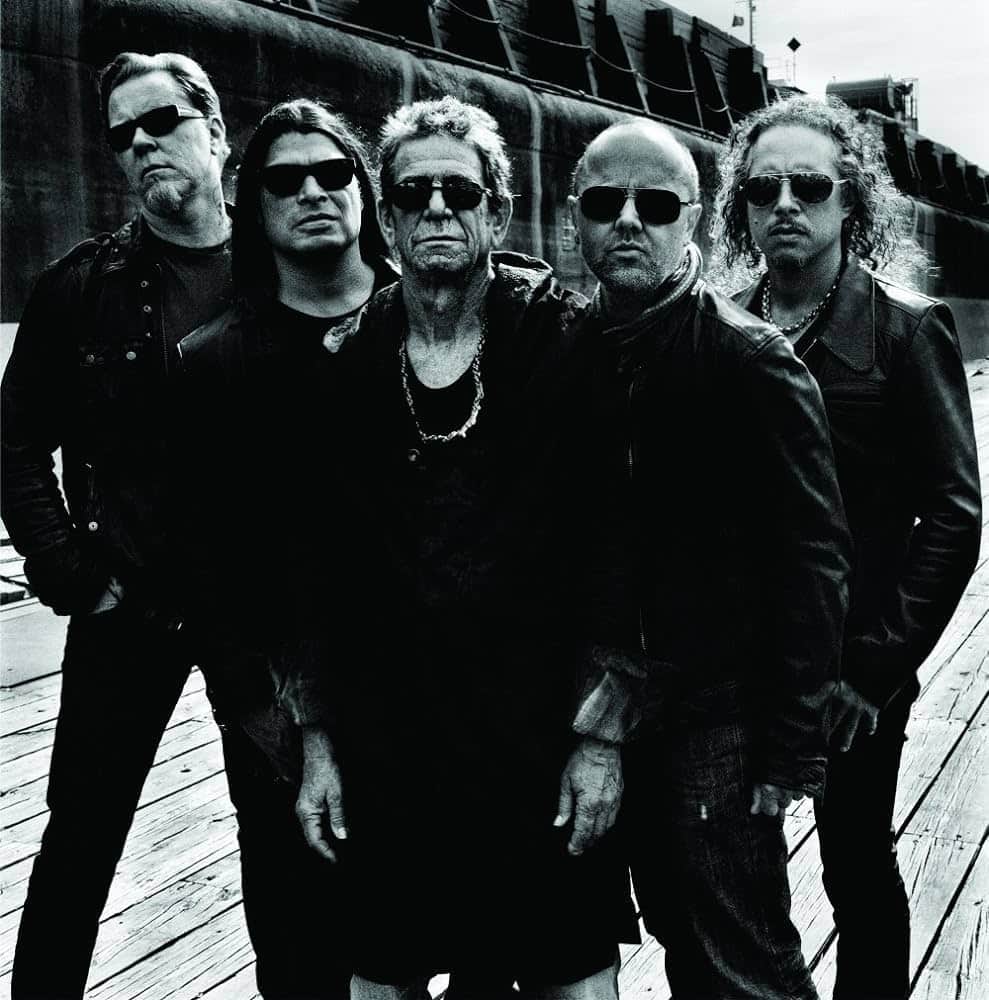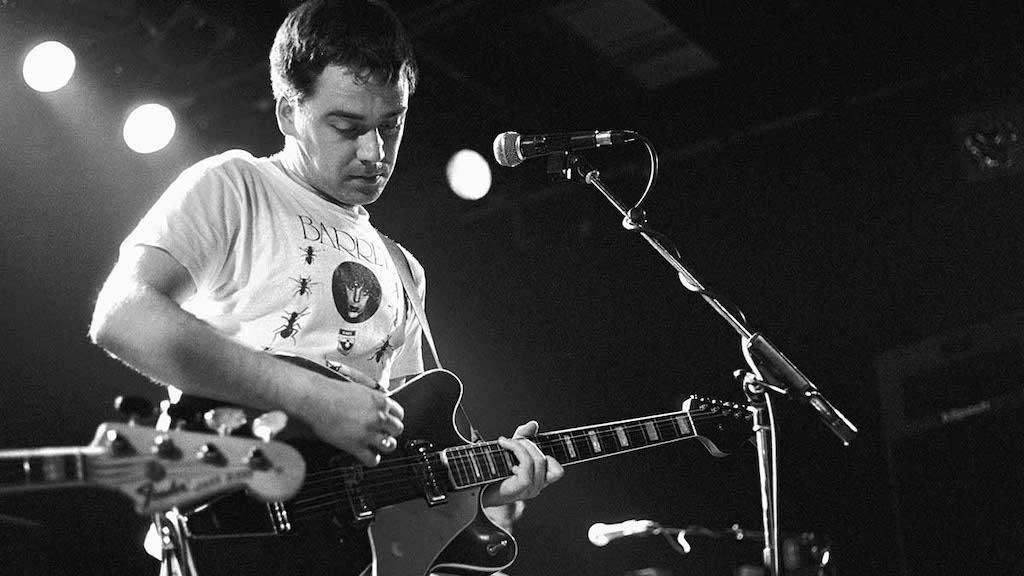Dudley Benson released his second album, Forest: Songs By Hirini Melbourne last November. In this candid interview, conducted before its release, Benson tells Gary Steel why he’s not on Facebook, and why the record can’t be found in record shops. This week, however, it will receive a belated “proper” release.
Witchdoctor – It’s a rare situation because usually when I talk to someone I’ve had an opportunity to preview the album.
Benson – It’s one of those situations that’s occurred naturally in that I couldn’t have much control over it, but I think it’s probably for the best. Um…
Witchdoctor – Is it because you wanted it to come fresh without any preconceptions?
Benson – I think so. I think so. This record, more so than the album or EPs I’ve made already, requires an interesting birthing process where for the first time I need to bring my people together, my friends and whanau, and present it to them before anyone else. I feel that instinctively and I have to honour that. It’s more than just me that’s accountable to this piece of work. It’s Hirini Melbourne’s legacy and his waiata, and I must do that first.
Witchdoctor – You’re doing that in the context of the tour itself, or you’re previewing it to them?
Benson – I’m having a listening hui, essentially, and that has to happen close to, or around the time I begin sharing it with press. It would be like when you’re little and you’re being naughty in the back seat of the car and your mum or dad say ‘get out and walk’, if I were to share it with one or two people now, it would be like saying to the album or a couple of songs, ‘get out’ and I’d need to drive it to its destination first.
Witchdoctor – For you it was partially that you had worked on a Hirini Melbourne project and also experiencing bird life in the forest? At what point did it resolve itself as your next record?
Benson – It was amazing because it was a second, a moment, I don’t have photographic memory, but I remember what I was seeing at the time when it suddenly occurred to me that I had to make this album. As you said I had arranged a piece of Melbourne’s for performance on my 2008 tour, it was a song called ‘The Shining Cuckoo’, and the reason that I’d arranged that for the tour was that Richard Nunns was opening each performance. He was also on that album, The Awakening, and through working with him, and researching him, that directly led me to his closest collaborator, the late Hirini Melbourne, and then I explored his back catalogue. I’m one of these people that, I think that if I wasn’t doing what I’m doing now, I’d be a librarian, I really enjoy that archival, researching process, connecting dots and then enriching your life from bringing all these things into it, and Hirini’s ‘Waiata’ was one of these researching scenarios. We performed ‘The Shining Cuckoo’ on tour, Richard and I with my choir and string quartet, and it was one of the highlights of the tour, we had everyone in the audience imitating the shining cuckoo with the song. And it was just one of those pieces that I remember being successful. You do these projects and then a year goes by and you’ve forgotten 90 percent of the details, but 10 percent of those wonderful moments you remember, and that was one of these. But I was really exhausted at the end of that album and tour project, and not at all thinking about what was coming up, just having a break, heading overseas for six months. But before doing that I spent a couple of months in the deep south, just to retreat. And I was on Ulver Island, which is about six minutes water taxi from Stewart Island, it’s a bird sanctuary, pest and predator free. I haven’t experienced anything like being there; it was the oxygen, the lack of sound, the fact that you’re on this island, no people, and birds following you. You can only know what it’s like if you’ve been to a bird sanctuary, and had that experience. It was incredible. And on these things I naturally drift away from the people I’m with – either I’ll just stop and stay behind or move ahead, I like to be by myself and just take it in. And yet the experience on Ulver Island was that though there was this beautiful bird song there was also this vacuous silence for large chunks of time, and I remembered a comment that Richard Nunns had said on the tour that the forests used to be black with kereru, and suddenly in that moment of accepting the silence, ‘Pipiwharauroa’ (‘Shining Cuckoo’), that song of Hirini’s, and all the other waiata that I had researched, they all made sense, in that second, and then I knew that it was my duty to present those songs in a new context.
Witchdoctor – Is it the noise that would have filled the forests 500 years ago that you’re evoking on this record?
Benson – Um. I’ve chosen not to largely represent the silence and the sadness of the feeling that I experienced, and instead to celebrate what we could have if we make the right decisions. I think that if you preach as an artist too much the message can get easily lost. I’ve found through celebration of things that I’m concerned about, that’s a way of positively engaging in a discussion about what needs to happen surrounding that issue. So this album, though it came from a deep sadness that I experienced, in some ways, it’s an album that is like a party that only birds are invited to. It’s very colourful, it’s not black.
Witchdoctor – It’s so hard to ask about something you haven’t heard.
Benson – I understand. Maybe I should ask you what you’re thinking about. Do you have any idea about how you want to angle the piece, and I could perhaps give you some information.
Witchdoctor – I never do that before I write it. I just like to have a conversation, then sit down and write. I do find it intriguing, because I love those albums of Hirini Melbourne and Richard Nunns. Haunting stuff. One of the things I wanted to ask you about was high art/low art. You do describe the music as pop, at one point. I find that interesting, because it’s also been described as art music. There always seems to have been what seems to me to be an entirely arbitrary division between high and low art, and to me pop music can be great art, and in some ways it seems to me that you’re broaching that. Maybe it’s something you’re not so conscious of.
Benson – I know what you’re saying. There’s an essence that I insert into everything I do that is pop. Certainly when I talk about my work, I do try to emphasise that it is pop music. I’m also conscious that I’m bringing elements like choral music traditions and classical traditions into my work. But I see no reason why they can’t cross over, and I think that’s when you make new things, when you provide the world with something that they haven’t had before, when you take an axe to those boxes. I also think it’s important to emphasise that I’m currently interested in making pop music, because, if you take away all your baggage about what pop music is and you just look at it as a term, popular music for people, that is what I’m trying to do. The message is the essence in the work, the main core, that’s something that can be taken on and easily shared and that it’s relevant to people, not just to a select few, not to a high art crowd, so to speak, so that’s why I try to emphasise when I can that what I’m doing is pop.
Witchdoctor – Maybe you can tell me a bit about your forthcoming tour and the groupings you’ve got. You’ve got a choir?
Benson – No there’s not. For my last tour everything was very over the top. Not indulgent, but… I wanted to make it an epic experience, so we performed in churches and we had those reverberant acoustics and candles and a huge performance group. And that was a wonderful thing but I’ve now responded by wanting to do the complete opposite, so I’ve stripped it right back. If New Zealand was to experience a nationwide tsunami and everything fell over and the Sky Tower crumbled, all we’d have is our voices, and this tour’s a reminder of the essentials, so we’re performing in community centres and Marae. The beat boxer is female, Hopey One, she’s Maori but lives in Australia, so it’s her and I and a close harmony male quartet, like a barbershop, so we have this close unit where we only use our voices to communicate what we need to. And that’s a way to strip everything back. But the challenge is still of course to keep my principles intact, which is that I want to create beauty and emotion with my sound. So I’m looking forward to experimenting with how to impart that to my audiences.
Witchdoctor – Is it an actual evocation of bird song?
Benson – The album or the tour or both?
Witchdoctor – Both. It would be interesting to look at what’s different about the album and tour.
Benson – No, there’s no evocation of bird song as such. Composers have been experimenting with that for a long time and it wasn’t something that I was interested in doing, however I did allow bird song to influence melody and how I would pronounce words on the album.
Witchdoctor – So you’ve got some made-up words.
Benson – Many. So bird song wasn’t something to replicate but something to influence. In terms of a literal representation of bird song on the album, not on the tour, I have a bird mimic, from Franz Josef Glacier, his name’s Gerry Findlay, and I saw him in a film, Earth Whisperers, a Canterbury-made documentary on ten New Zealanders who are doing interesting things for the environment. I saw it on a rainy day in Akaroa Cinema quite by accident, and I knew half way through when Jerry came on exactly why I was here seeing this film, because he’s lived in a virgin forest in Franz Josef for ten years, every day going into the forest and just from being there every day has learnt how to communicate with the birds. His mimicry is incredible, so he appears on two songs on the record, he opens and closes the album. So that’s the only literal interpretation of bird song.
Witchdoctor – Most artists seemingly just go blindly from one album to another accumulating songs. Are you interested in having very specific projects in mind, like this, where conceptually it’s very different each time, and it actually sounds different?
Benson – Generally I’m guided by my instinct. I can’t say what I’ll do in the future, but you’re right in the sense that each project, each work I make is a statement and it has my name attached to it, I see it lasting for as long as we do, so therefore it needs to be a well designed and delivered document. I also don’t enjoy doing things twice. I like to experiment and move on.
Witchdoctor – You won’t be doing the reunion tour in 25 years then!
Benson – Who knows. So in that sense I consider each of my projects to be very different entities that come from very different places. But I can see now – I’m aware that I’m only 27 and I’m not that experienced – but if I look at the work I’ve done so far there are winds that blow from one work to the other, that carry certain spirits between them, so there was a natural flow from The Awakening into Forest, even though they’re extremely different records.
Witchdoctor – You think the intrinsic character carries through – you’re identifiable.
Benson – Well I think that would be a mark of me doing my job well, so I would hope so.
Witchdoctor – Tell me why you’re not on MySpace and all those things. Why are you so self-contained?
Benson – No Facebook. Those online social networking platforms terrify me. I feel that they represent us moving into a world of voyeurism, of false and genuine friendships and relationships, and it’s a distraction from living life. I know of people who spend at least an hour a day doing that and yet their lives aren’t any richer, all it means is that you’re in front of a screen for another hour a day, as well as dealing with everything else in a day that you need to do in front of a computer. And I feel that that’s not really the answer to our future. I feel that we need to be getting away from that and more in touch with the real elements of life and our land. That’s the main thrust of why I don’t want to put my project in the hands of that world.
Witchdoctor – What about access though. I can see a lot of people thinking this is very purist, very austere, to only have the album available through your website, only to have tickets available through your website, only to be playing community centres and maraes. Realistically, you’re cutting out a lot of potential audience by doing that, so from a marketing point of view it may be suicidal.
Benson – [nervous laugh]. Possibly. However, what I do love, and what is important to me is that the people who are there, and the people who do bring my project into their lives in whatever capacity, they are given an experience that’s completely separate from the kind of marketing that other artists get. By being purist and austere, though I’m cutting out, as you say, potential demographic, that doesn’t concern me because the people I am getting to, that the music is being channeled to, they deserve it. And I’m realistic too. I realise I’m not going to be New Zealand’s next big thing, I’m not going to be some overseas soundalike that NZ On Air picks up and pushes to horrible expo festivals overseas. That’s not me, and I’m not remotely interested in. It sounds like a nightmare to me, and yet so many New Zealand artists crave this, you can see it in their imagery. But fundamentally it’s about the work – when I’m dead, and those overseas soundalikes a dead, it’s their legacy that’s left behind, and I know I’d rather have a great, unique-sounding album than an updated Facebook page.
Witchdoctor – You could say, however, that you’ve used marketing mechanisms quite well in the past. Rose Hoare did a huge story in Sunday mag – there was kind of blanket coverage to the first album. I tend to have a negative reaction to that. Avatar – I didn’t want to see it. So in that sense, isn’t it the same as going through those mediums?
Benson – No, I don’t think it is the same. They’re very different platforms of expression. In an interview and in a written story and in photography it gets pressed and is accessible to anyone who picks it up, not just who has a Facebook account. I’m able to impart directly my ideas that then allow people, if they want to, to listen to the work. In terms of doing that kind of blanket press, rather than strategising too much, I go with what feels right, and for the Awakening project, I did turn down a significant amount of press, and chose to do pieces with people that I trusted, or felt would get to a certain person. So there is some thought behind it but at the same time, I don’t really want to spend a day at a desk strategizing too much where I’m going to be. I do think about it, but ultimately, I do let the universe take care of it.
Witchdoctor – There’s a sense of NZ pop music that there’s been so much music education that I sometimes think it has a negative impact – that business should be left to business people and composers should be left to do their own thing.
Benson – It’s false economy too, because to present these business forums and facilities to artists, that’s taxpayers’ dollars being spent, and yet artists don’t make money full stop. It’s all very well teaching us how to manage our bucks, but if we’re not making anything, what’s there to manage. It would be better assisting artists in creating their records, and in that way… and of course that does exist, Creative New Zealand and NZ On Air do fund records and projects, but particularly NZ On Air are very safe and conservative and predictable in who they support and they can’t seem to shake this tired, dusty idea that our most successful exports are going to be ones that exist already all over the world.
Witchdoctor – I find myself agreeing with you.
Benson – And how is it that the Feelers can get $50 thousand for an album. Did they spend 10 thousand on the album and 40 on the wrap party? When we’ve got New Zealand children who don’t have shoes to get to school in, and yet the Feelers are given our money to create the most insipid work. There’s some misguided things going on somewhere up there.
Witchdoctor – Talking about the New Zealand aspect. Do you see being intrinsically NZ is very important to what you do and who you are? Both your albums thus far are incredibly full of things that are important to us, that New Zealanders would recognize, and maybe completely unknown to people in other countries. Would you write an album about New York City or something?
Benson – Who knows. Fundamentally I’m a person of this land, and therefore in my expression if I’m honest I’m going to want to present that relationship in my work. I truly feel also that as we become more global and socially, politically, commercially we want to replicate overseas models, it’s more and more time to take stock of what it is to be of Aotearoa. And therefore I want to subconsciously try to remind of that in my work, how everything we need is here. Yet at the same time I’m also very aware that I do express my surroundings and the world that I place myself in, so if I were to be somewhere else, I’m sure that would naturally come through. But we have so much in Aotearoa that is yet to be expressed, in art but particularly in pop music. There’s a whole constellation of opportunity to be expressed, and that’s my main concern.
Witchdoctor – Tell me about Vashti Bunyun. Did you meet her and work with her?
Benson – No. I sent Vashti The Awakening when it was released. I felt it influenced the work, and anyone who influenced it I sent them a copy.
Witchdoctor – So you had heard her material and liked it?
Benson – Very much so. I’m profoundly affected by her work. Just Another Diamond Day, and equally so, if not more, her more recent album. I feel that Vashti’s voice and the kaupapa of her work is like the wind. No other artist for me has been able to present an element that is around us that we can’t see, that we can feel. And Hirini is the earth. So I sent Vashti The Awakening, and I’d never had contact before, but I just knew I had to send it to her. Needless to say she got in touch with me about it, because she really liked it, and we just kept a dialogue. So when it came to arranging Forest it seemed like the kind of project that a duet would be very appropriate for, and the relationship that I felt between Vashti’s voice and Hirini’s voice and their messages, their concerns aligned so well that Vashti was clearly the person to sing this duet with. I got in touch with her about that, and she liked the song, and recorded it in Edinburgh, and sent it, and then I recorded my part over hers, so we didn’t meet unfortunately. If I had $50,000 I would have flown over there. I still feel as if there’s more for us in the future, who knows, but this is a lovely starting point.
Witchdoctor – I feel the same way you do about her. Even Nick Drake doesn’t compare.
Benson – Even Joni Mitchell. I do love Joni Mitchell but I see Vashti as a deeper purity, the essence is clearer, and that’s not easy. It’s HARD to be clear in your music, there’s a natural need or want or desire to add things, colour things up. But Vashti keeps it pure, like Hirini.
Witchdoctor – I think of her voice as being beyond voice, beyond gender, not even ethereal. Ethereal is just whispy things going around, but her voice is like a whispering chord that goes straight ‘here’. Quite extraordinary. I don’t know if you have the collection of A and B-sides.
Benson – Oh I’ve got that. Some Things Just Stick In Your Mind.
Witchdoctor – Even there her voice is amazing.
Benson – I agree. And there was a lovely link too because on that same tour I did a duet with my sister Jess of a Vashti Bunyon song, ‘Coldest Night Of The Year’, from Some Things Just Stick In Your Mind. So the the flow that I mentioned between projects, so possibly the last song I arranged for that project was ‘Coldest Night Of The Year’. I don’t know what I would have done if Vashti had said ‘no’. Died a little bit.
Witchdoctor – You’ve got to take these risks.
Benson – You do. And I think if you’re honest to the work then generally you get what is right.
Witchdoctor – And with courage.
Benson – That’s right, with courage. I agree.
Witchdoctor – You’ve got no conventional marketing mechanism behind this project?
Benson – There are certain conventions that you have to adhere to, like interviews and our website.
Witchdoctor – You’ve got Josh (manager/partner) approaching people saying ‘here it is, are you interested?’ No conventional distribution at all.
Benson – That was a really instinctive decision, not to put it in the shops. I’m not concerned with sales, so it was a great opportunity to experiment with a new method of distributing my work. I think also that we’re at a very awkward place with music retail where it’s trying to find itself in a world that’s kind of kicking it out, and Forest, I didn’t want it to be in that place, on a dirty dusty yellow shelf being fingerprinted, with a discount price.
Witchdoctor – Or in the heavy metal section at Real Groovy.
Benson – Heaven forbid. So putting it on the website was about making a connection for people who really want to hear it. They’ll find out where it is, and by them ordering and receiving their mailorder… I LOVE getting an album in the post! You anticipate it, it arrives, you unwrap it, you put it on, and how much more holistic is that than driving into town, finding a park, going into a horribly invasive store experience, dealing with an attendant who may as well be a robot, and then that’s your experience of buying this music. That’s not at all what it’s about to me.
Witchdoctor – What about downloads?
Benson – I’m getting more comfortable with that idea, but with The Awakening and The Forest, they’re very organic projects, they’re earth and roots and rain, not quite plastic and cables. I love plastic and cables in some ways, but not just yet.
Witchdoctor – Is quite an important part of it the package?
Benson – Totally. That can be just as important as the music. I personally spend a lot of time on that aesthetic. The world’s got enough junk-heap ugly plastic things in it. If there’s an opportunity for me to add something that’s beautiful, then why not.
Witchdoctor – Obviously your work is challenging from the normal perspective. An issue for the pop and rock world rather than the art world is that as soon as somebody does something different, it’s pretentious.
Benson – Perhaps one or two things along the road, but I think that’s to be expected when you want to test new things. And also when you take yourself as seriously as I do. I take my work seriously, because it’s what I do. I think that can set you up to be labeled as pretentious, but fundamentally also, I know that at times journalists or people can be wanting to look for that, and if they don’t want to open themselves up to the real concerns of the work, then a superficial thing to focus on could be that supposed pretention. But it’s a funny thing, it’s a small grey area really, a grey band, but possibly I’m not the right person to be judging my own work. But I do know that it’s honest.
Witchdoctor – The typical music writer still has a red flag that goes up when anybody does anything virtuosic or isn’t kind of authentically grungy. And pretentiousness is the word that gets bandied about, but I would say it’s not the right word. In your case, artistically ambitious, it’s not pretending to be something it’s not.
Benson – I agree.
Witchdoctor – The new Phil Collins album is pretentious, because he’s trying to replicate a sound that he loved as he was growing up, and doing it as a vanity project.
Anything else you want to tell me about this project?
Benson – No, there’s nothing else I want to say. I hope the fact that you haven’t heard it doesn’t stop you from…
Witchdoctor – It’s only about the third time it’s happened in 32 years of writing about music. The last time was Robert Wyatt.
Benson – ComicOpera? Great album. That duet ‘Just As You Are’ is one of his greatest songs I think. It’s a beautiful song.
Witchdoctor – I love his stuff. Again he’s one of those artists like Vashti that’s almost outside of tradition.
Benson – Did you hear Barbara Morgenstern’s recent album? You heard that duet?
Witchdoctor – Yes. Somebody told me that you’d brought that into the country.
D – I did. Through my label. Barbara invited me to write a piece for a festival that she was curating, a choral piece in 2008, so I went to Berlin, and presented the work, and through that became friends with Barbara, and then released her album here. And that song’s great, the Robert and Barbara duet.
Witchdoctor – That last album had a really Wyatt character about it.
Benson – It did actually, a haunting…
Witchdoctor – An undertow, almost that melancholy flavour. I don’t know what it is about her stuff, I just like it.
Benson – Same. I think there’s something in her voice that’s quite comforting and just easy to take in, and that allows her to juxtapose it with her Berlin/German obsession with technology, which means it translates quite easily and stays more human.
Witchdoctor – I almost prefer that it’s in a foreign language.
Benson – So do I! Me too actually. That’s right.
Witchdoctor – Singing can get awfully tied up with language. So many people will only recognise a song that’s in their language.
Benson – Well that’s something… the album’s largely in Te Reo Maori, which allowed me to, not as a first speaker of Maori… it was just a different side of the brain. It was a real pleasure. There’s a real purity in the language, and the pronunciation of the language, the vowels, they’re just lovely simple sounds to say. As a Pakeha, though I studied Te Reo Maori for a year in preparation for the album, there was still a certain distance between me and the words, which was great. The words were like a dance partner that’s being a bit elusive.
Witchdoctor – Now can you speak fluently?
Benson – No. It’s an ongoing journey that you’d have to be in an environment where you’re constantly speaking it. What I got from that time was a solid foundation of the way that the language works, the structure of it, its correct pronunciation, and it was a step into the Maori world, we learnt it on a marae.

